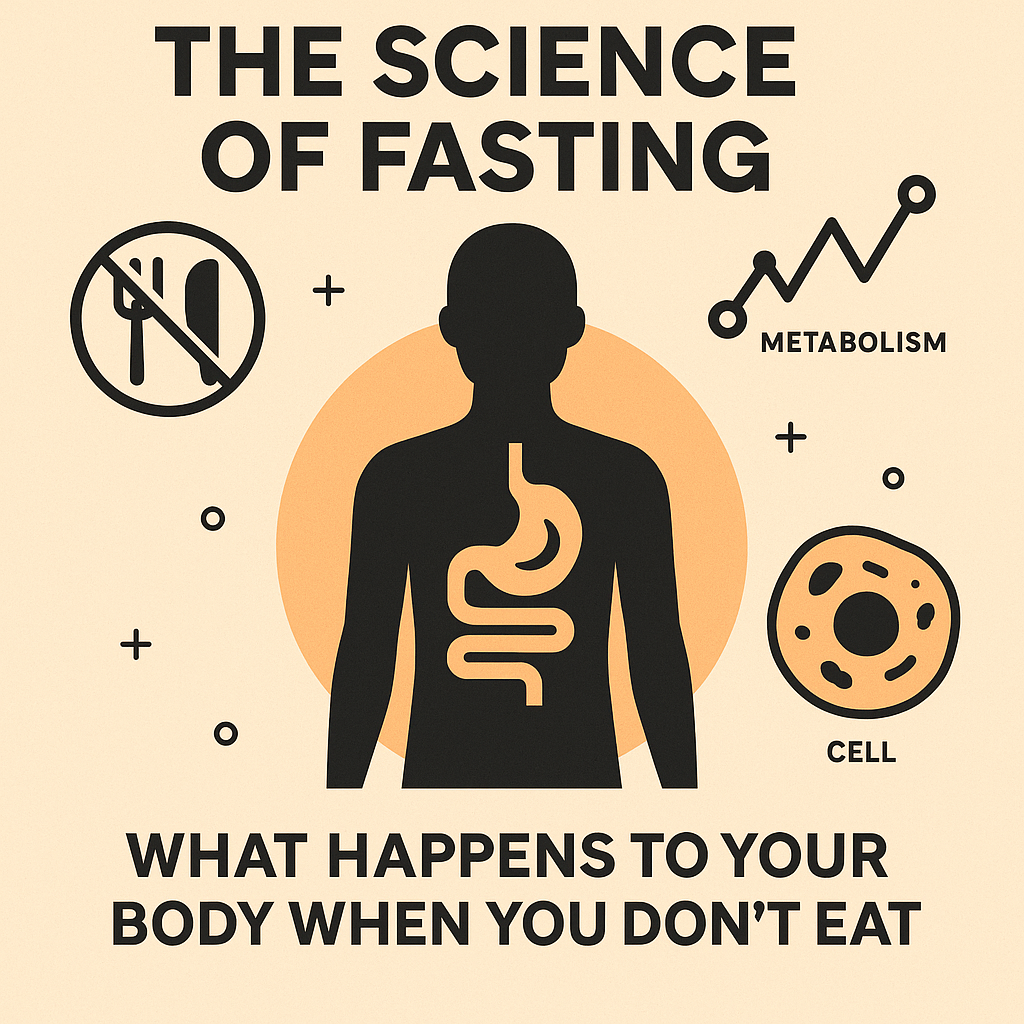
The Science of Fasting
In today’s world of constant eating and snacking, it seems like a weird thing to not eat for hours—maybe days, extreme. But fasting, whether for spiritual, cultural, or health reasons, has been going on for decades. Now science is catching up to tradition and finding out how fasting affects your body, your metabolism, and actually your cells.
Whether you’re a seasoned intermittent faster or just interested in the trend, what exactly happens? Subsurface info helps you make informed decisions. Here’s how it works: the physiological changes that occur when you fast… and why your body might actually benefit from it.
Phase 1: The First Few Hours (0–4 Hours) – The Fed State
After you eat, your body enters the fed state. Blood sugar increases as carbohydrates are broken down into glucose, and insulin is released to help cells absorb that glucose (energy) or store it as glycogen (in the liver and muscles) or fat.
Key processes:
- Insulin increases
- Energy comes from recent food intake
- Fat burning is suppressed
At this stage, your body is focused on digesting and storing, not healing or repairing.
Phase 2: 4–16 Hours – Shifting Into Fat-Burning Mode
Once you’ve gone several hours, insulin levels drop if you don’t eat. Without new food coming into the system, your body starts relying on its glycogen stores (stored glucose in the liver) to maintain energy levels.
By 12–16 hours into a fast, gastric emptying causes hunger—for anaemia the body starts looking for fat stores.
Key processes:
- Glycogen depletion begins
- Fat begins breaking down into fatty acids
- Blood sugar stabilizes
- Mild ketosis may start (depending on the individual)
This is when many people report increased mental clarity and steady, steady energy—compared to blood sugar crashes that can occur during frequent snacking.
Phase 3: 16–24 Hours – Ketosis and Fat Adaptation
Once glycogen stores are mostly used up, the liver starts producing ketones from fat, which can be used as energy—something else to feed your brain and body. This metabolic switch one reasoning why intermittent fasting is associated with weight loss and cognitive benefits.
Key benefits emerging:
- Ketosis begins (fat → ketones for brain energy)
- Inflammation may start to reduce
- Autophagy (cellular cleanup) is initiated
Some people experience hunger at this point, but people find it easier to fast after 16 hours than before.
Phase 4: 24–72 Hours – Deep Repair and Autophagy
During longer fasts (beyond 24 hours), your body goes into a deeper metabolic state. One of the most interesting ones processes activated is autophagy, which literally means “self-eating.” This is where your body will break down damaged cells and recycle the good ones.
Key processes:
- Autophagy accelerates
- Inflammation significantly drops
- Growth hormone increases (up to 5x in some studies)
- Insulin sensitivity improves
- Stem cell regeneration (in longer fasts, 48+ hours)
Autophagy is associated with anti-aging, disease prevention, and cellular rejuvenation—making it one of the most powerful benefits of prolonged fasting.
Phase 5: Refeeding – A Critical Stage
While fasting brings many benefits, how it matters also how you break a fast. Give food back gently and slowly. Thoughtfully helps prevent digestive distress and ensures your body transitions smoothly back into the fed state.
Start with:
- Easily digestible foods (bone broth, cooked vegetables, fermented foods)
- Avoid ultra-processed or high-sugar meals
- Focus on hydration and electrolytes
What the Research Says: Scientific Evidence Behind Fasting
Fasting isn’t just a wellness fad—it’s a practice that gets more and more scientific evidence to back up it.
🔬 1. Weight Loss & Metabolic Health
A 2020 review published in the New England Journal of Medicine found that intermittent fasting improves insulin sensitivity, helps with body fat level, and may help prevent Type 2 diabetes [1].
🔬 2. Autophagy & Longevity
Japanese researcher Yoshinori Ohsumi (2015 Nobel Prize in Physiology or Medicine) for his work on autophagy, highlighting how fasting may delay aging and protect against neurodegenerative diseases [2].
🔬 3. Inflammation & Disease Risk
Studies have shown that fasting reduces markers of systemic inflammation, one mechanism of many chronic disease illnesses like heart disease, arthritis, and cancer [3].
🔬 4. Brain Function
Fasting increases brain-derived neurotrophic factor (BDNF) expression, which is required for brain function, learning and memory in animals. Animal evidence shows that increased expression of BDNF may contribute to Alzheimer ‘s and Parkinson ‘s disease protection [4].
Final Thoughts: Should You Try Fasting?
Fasting can offer significant health benefits—from weight management and mental clarity to cellular repair and longevity. But it’s not a one-size-fits-all solution. If you’re pregnant, either underweight or with a chronic health issue, talk to a healthcare provider before fasting.
Start small, stay hydrated, and listen to your body. That’s the science. Strategic periods of not eating can be just as powerful as what you eat.
📚 References
- de Cabo, R., & Mattson, M. P. (2019). Effects of Intermittent Fasting on Health, Aging, and Disease. New England Journal of Medicine, 381(26), 2541–2551.
- Nobel Prize Organization (2016). The Nobel Prize in Physiology or Medicine 2016 – Yoshinori Ohsumi.
- Longo, V. D., & Panda, S. (2016). Fasting, Circadian Rhythms, and Time-Restricted Feeding in Healthy Lifespan. Cell Metabolism, 23(6), 1048–1059.
- Mattson, M. P., et al. (2018). Intermittent Metabolic Switching, Neuroplasticity and Brain Health. Nature Reviews Neuroscience, 19, 63–80.
